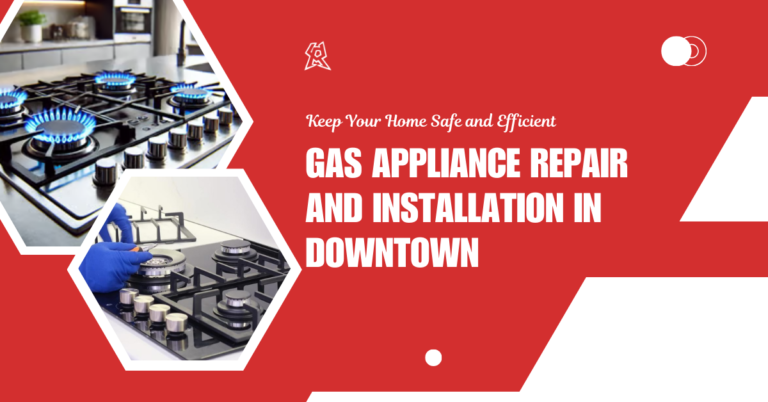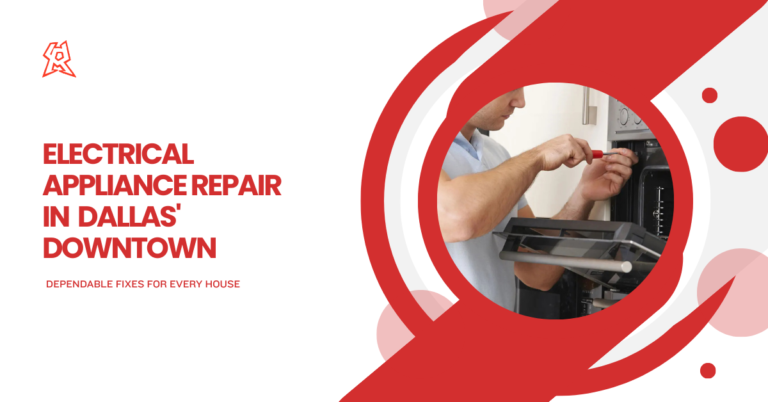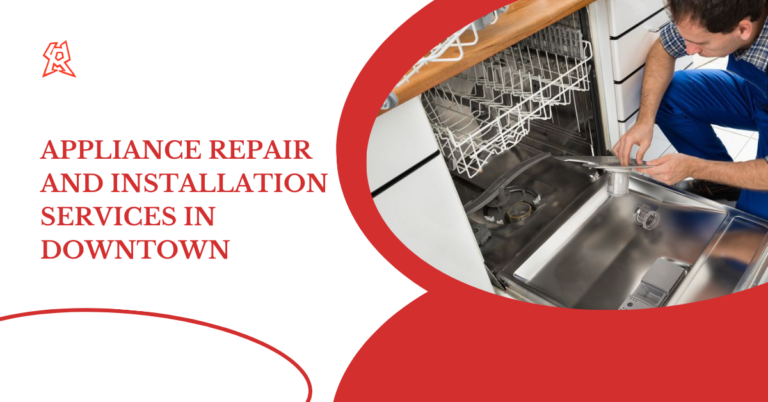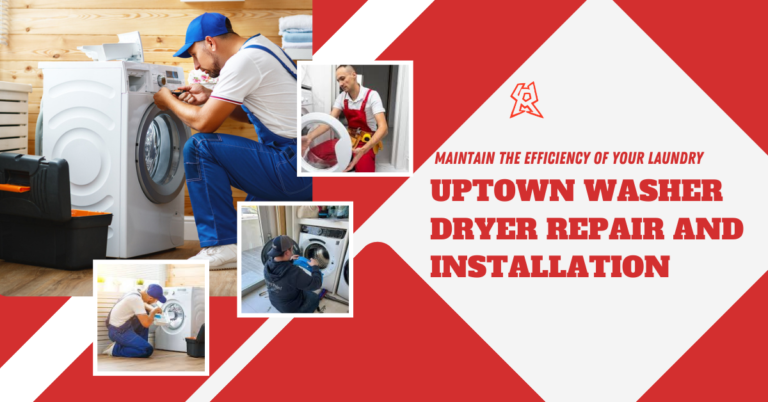Gas Oven Repair: Why Your Oven Smells Like Gas – Safety Tips

Why Your Oven Smells Like Gas – Safety Tips
A gas oven is a staple in many homes, known for efficient and even heating. But if you notice a gas smell when using your oven, it’s a red flag that shouldn’t be ignored. Whether it’s a faint odor at ignition or a persistent leak, understanding the causes and knowing how to respond is critical. In this article, we’ll walk you through what a gas smell might mean, how to troubleshoot burner issues, and when it’s time to call in a professional for gas oven repair.
Is It Normal to Smell Gas When Using a Gas Oven?
If you catch a brief gas smell during ignition, it might not be unusual. When turning on the oven, there’s often a momentary delay before the flame ignites, allowing a small amount of gas to escape. This should dissipate quickly and only last for a second or two. However, if the smell lingers, worsens over time, or happens when the oven isn’t in use, it may indicate a dangerous issue. Ignoring it could compromise your kitchen safety.
Common Causes of Gas Smell from Your Oven
There are several reasons your oven may emit a gas odor. Here are the most common ones:
Delayed Ignition
A delay in the oven’s ignition process allows gas to build up before lighting. When it finally ignites, it may cause a noticeable puff of gas and a strong odor. This is a sign of burner issues and should be looked at immediately.
Loose or Damaged Gas Connections
If you smell gas when the oven isn’t on, you may have a leak from a loose gas line or faulty connection. This is not only a fire hazard but also a health risk, requiring urgent gas oven repair.
Dirty Burners
Burners covered in grease, food, or debris can fail to ignite properly. This disrupts combustion, allowing gas to escape without burning fully producing a faint gas smell each time you cook.
Worn Igniter
A weak or failing igniter doesn’t generate enough heat to light the burner promptly. This means gas will escape for several seconds, leading to a strong odor. Replacing the igniter is a common gas oven repair solution.
How to Check for a Gas Leak (Safely)
Never attempt to repair a gas leak yourself. However, there are a few safe steps you can take to confirm whether the gas smell is coming from the oven:
Use Your Senses
stench: Natural gas is odorless but treated with mercaptan; a rotten egg stench is an indication of gas.
Listen: A hissing sound near the gas connection may signal a leak.
Soapy Water Test
The gas line connector should be cleaned with a solution of soap and water. If bubbles form, you likely have a leak.
Shut Off the Gas Supply
Close the gas valve and open the airways if you think there may be a leak. Contact a gas oven repair technician immediately.
Essential Gas Oven Safety Tips
Protecting your home and family requires proactive safety measures. Here are a few practical steps to ensure long-term kitchen safety:
Install Carbon Monoxide Detectors
Gas ovens can release carbon monoxide if not properly ventilated. Detectors provide a crucial early warning if this deadly gas is present.
Keep Burners Clean
Cleaning burners and ignition ports on a regular basis will help to minimize burner problems.
Grease and debris often lead to incomplete combustion.
Don’t Use the Oven as a Heater
Using a gas oven to heat your home is extremely unsafe and increases the risk of leaks and fires.
Schedule Annual Inspections
Have a professional check your gas lines, valves, and burners each year. Regular maintenance can prevent the need for emergency gas oven repair later on.
Signs It’s Time to Call a Gas Oven Repair Expert
Some problems need immediate attention from qualified professionals. Here’s when to pick up the phone:
- Even when the oven is turned off, the gas smell continues.
- Burners ignite slowly or not at all
- The oven makes a popping or hissing noise.
- You suspect a burner issue but can’t pinpoint the cause
- Carbon monoxide detector alerts while using the oven
Don’t take chances timely gas oven repair can prevent fires, explosions, and health risks.
What Happens During a Professional Gas Oven Repair?
Here’s what to expect when you hire a licensed appliance technician:
- Full Inspection – The tech will check for gas leaks, damaged igniters, or defective parts.
- Cleaning and Maintenance – If needed, they’ll clean the burners and connections.
- Parts Replacement – Faulty components like igniters, valves, or thermostats may be replaced.
- Safety Testing: To guarantee kitchen safety, the technician will test your oven following repairs.
Hiring a skilled technician ensures the problem is fixed efficiently, with no guesswork involved.
The Dangers of DIY Gas Oven Repairs
Unlike electric ovens, gas ovens carry significant risk if handled improperly. Trying to fix leaks or burner issues yourself can lead to:
- Explosions from improper reattachment of gas lines
- Carbon monoxide poisoning from incomplete combustion
- Voiding your oven’s warranty
For peace of mind and real safety, leave gas oven repair to the pros.
Preventative Measures to Avoid Future Oven Leaks
Want to reduce the chances of smelling gas again? Here’s what you can do:
- Clean the oven weekly, especially after spills
- Inspect burners for clogging or discoloration
- Pay attention to the igniter; delayed igniting is a warning sign.
- Test for leaks after any major repair
- Make an appointment for an annual servicing from a reputable appliance specialist.
Following these steps ensures fewer burner issues and greater long-term kitchen safety.
Trust Universal Repair Services for Expert Gas Oven Repair
At Universal Repair Services, we specialize in safe, affordable, and prompt gas oven repair throughout the Dallas–Fort Worth area. Whether your igniter needs replacing or you’re worried about a possible gas smell, our certified technicians are ready to help. We don’t just fix appliances, we ensure your home is safe, your oven is functional, and your family is protected.
-
 Gas Appliance Repair and Installation in Downtown (Dallas): Keep Your Home Safe and Efficient22 Jan 2026 Blog
Gas Appliance Repair and Installation in Downtown (Dallas): Keep Your Home Safe and Efficient22 Jan 2026 Blog -
 Reliable Electrical Appliance Repair in Dallas' Downtown: Dependable Fixes for Every House22 Jan 2026 Blog
Reliable Electrical Appliance Repair in Dallas' Downtown: Dependable Fixes for Every House22 Jan 2026 Blog -
 Appliance Repair and Installation Services in Downtown22 Jan 2026 Blog
Appliance Repair and Installation Services in Downtown22 Jan 2026 Blog -
 Uptown Washer Dryer Repair and Installation: Maintain the Efficiency of Your Laundry22 Jan 2026 Blog
Uptown Washer Dryer Repair and Installation: Maintain the Efficiency of Your Laundry22 Jan 2026 Blog
Recent posts
-
 Gas Appliance Repair and Installation in Downtown (Dallas): Keep Your Home Safe and Efficient
Gas Appliance Repair and Installation in Downtown (Dallas): Keep Your Home Safe and Efficient -
 Reliable Electrical Appliance Repair in Dallas' Downtown: Dependable Fixes for Every House
Reliable Electrical Appliance Repair in Dallas' Downtown: Dependable Fixes for Every House -
 Appliance Repair and Installation Services in Downtown
Appliance Repair and Installation Services in Downtown -
 Uptown Washer Dryer Repair and Installation: Maintain the Efficiency of Your Laundry
Uptown Washer Dryer Repair and Installation: Maintain the Efficiency of Your Laundry

